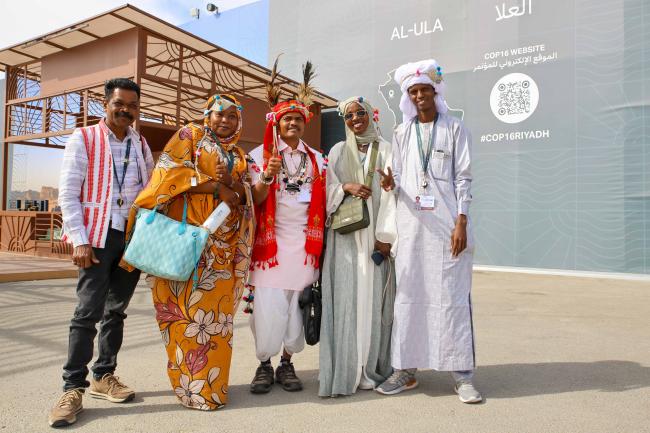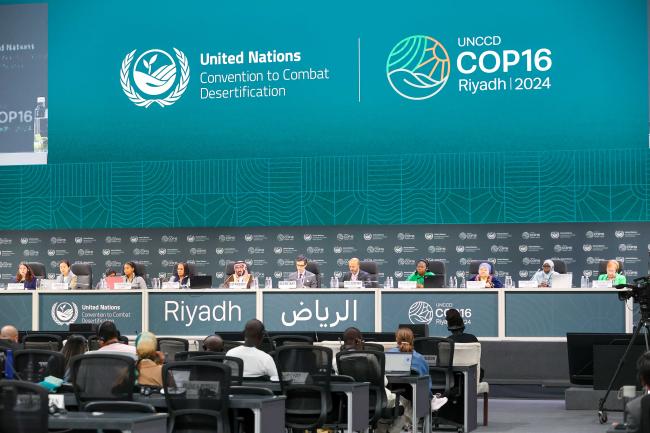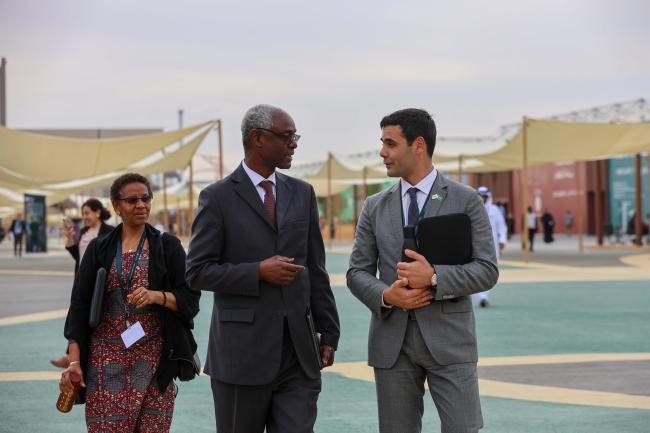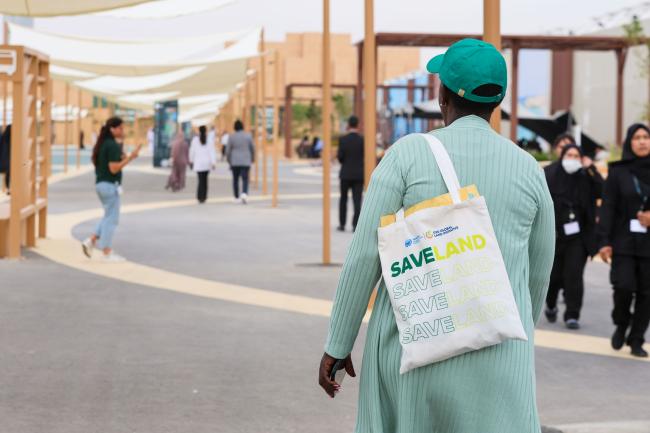Science, Technology, and Innovation Day opened the second week of the 16th meeting of the Conference of the Parties to the UN Convention to Combat Desertification (UNCCD COP 16). This thematic day featured high-level dialogues and interactive sessions, including the launch of the International Science, Technology, and Innovation Forum.
The second open dialogue with civil society also focused on innovation, as panelists described their unique programmes to address land degradation and drought.
Want to dig deeper into today's talks? Read the full Earth Negotiations Bulletin daily report.
Tarja Halonen, Former President, Finland and UNCCD Land Ambassador, remarked on the importance of including everyone in the development of solutions. She highlighted the significance of local, Indigenous, and traditional knowledges and the need for horizontal knowledge exchanges.
Keynote speaker Celeste Drake, International Labour Organization (ILO), noted the importance of inclusive dialogues for elaborating solutions that matter and last. She highlighted the results of a recent report, which found that investing in nature-based solutions can create up to 32 million new jobs by 2030.
Panelists told inspiring stories from around the world to bring home the true value of inclusive investment in land, restoration activities, and the importance of the creative and innovative role of civil society, Indigenous Peoples, women, and youth.
The Committee of the Whole (COW) opened discussions on: the private sector and the business engagement strategy; the UNCCD communication plan; synergies with other relevant conventions and international organizations, institutions, and agencies; participation of civil society organizations (CSOs) in the UNCCD; and the work programme for COP 17.
The discussion on the participation of civil society in the meetings and processes of the UNCCD featured calls for enhanced CSO participation. The need to empower and enhance participation of youth and Indigenous Peoples was highlighted, noting the important roles they play in implementing the Convention. However, some said that while they welcome greater CSO participation, as COP 16 observers they should not participate in the work of contact groups since those are reserved for governments according to UN practices.
The Committee for the Review of the Implementation of the Convention (CRIC) focused on capacity building to further the implementation of the Convention. Participants in a panel discussion described their organization or government’s capacity-building strategies and responded to questions from the floor.
Contact groups met throughout the day to focus on a variety of topics, including land tenure, migration as a driver of land degradation, drought, and the budget. With limited progress so far, the contact groups will have no choice but to pick up the pace to ensure that all decisions can be adopted at the end of the week.
To receive free coverage of global environmental events delivered to your inbox, subscribe to the ENB Update newsletter.
All ENB photos are free to use with attribution. For UNCCD COP 16, please use: Photo by IISD/ENB | Anastasia Rodopoulou























































































